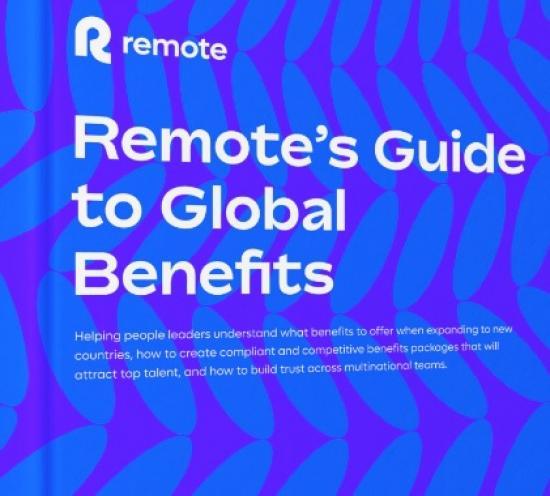The UK's Most Popular Employee ‘Work Perks'
15th August 2022

New survey conducted by Remote to 2,000 UK workers and 10,000 worldwide reveals the most desirable work perks companies should be paying attention to.
Overtime pay (79%), flexible working hours (77%) and company-sponsored retirement plans (75%) rank as the most popular employee ‘work perks' in the UK.
Real-world team building is valued the most by 16-34 year olds.
Expert explains how providing employee "work perks" can boost staff productivity.
A new study by Remote has surveyed 10,000 individuals across five nations to reveal what employees value the most when it comes to ‘work perks', and how these differ across locations, industries and generations. You can view the full story HERE
With the labour market currently leaning in favour of employees, a company's ability to attract and retain the right talent has never been more important. When sifting through hundreds of job adverts, a company's perks can be pivotal in an individual's decision to apply for a role. But whether it's flexible working hours or a secure retirement scheme, what are the most desirable ‘work perks'?
Four in five Brits agree overtime pay is their most desired work perk
With the cost of living on the rise it is no surprise that overtime pay (79%) topped the list of Brits' more desired "work perk". Flexible working hours (77%) and company-sponsored retirement plans (75%) followed in second and third place as some of the most popular employee benefits in the UK.
Work/life balance was a key theme reflected throughout the survey results as early finishes on Fridays (66%) and a 4-day work week (64%) also ranked in the five most desired ‘work perks'.
Gen Zs and Millennials value face-to-face team building more than any other generation
The survey also explored the opinions of those across five nations including the UK, US, France, Germany and The Netherlands, to uncover what individuals across different generations and industries value the most when it comes to ‘work perks'.
Continuing to uphold the tradition of in-person work events was a key priority amongst both Gen Zs and Millennials, as they were the generations which value in-person team-building events most (57%/59%). Well-being and mental health were also highly valued by these generations as they also favoured access to mental health coaching the most (58%).
Baby boomers' priorities were slightly different, with company-sponsored retirement plans (80%) topping their list as the most desired ‘work perk'.
Those who work in IT and telecommunications favour flexible working more than any other sector
Generation was not the only factor in an individual's most desired ‘work perk', industry was also found to play a significant role. Individuals who work in education (78%) and law (78%) were found to value company-sponsored retirement plans or pensions the most, compared to those in IT and telecoms who favoured flexible working hours (81%).
Those under significant stress and pressure in the healthcare sector prioritised access to online therapy and mental health support more than any other industry (59%). Healthcare workers were not the only individuals who prioritised their mental health, as those working in finance were found to desire access to virtual yoga or mindfulness sessions more than any other sector (45%).
Higher levels of productivity are among the benefits employers reap from providing ‘work perks'
Psychotherapist Sarah Lee offers exclusive insight on the relationship between employee benefits and staff productivity, stating:
"Given the increased interest in mental health in recent years, I believe that employees are becoming more aware of the connections between work and their wellbeing.
"Employee benefits such as flexible working can be another way to value employees or to be more inclusive. It demonstrates an understanding that not everyone has the same commitments or priorities.
"Individuals who feel valued, respected, and who have the flexibility to take care of themselves are better able to focus on work and if they feel good about themselves are more productive. In situations with poor working conditions, morale is often low and people can end up feeling helpless and depressed or demotivated."
